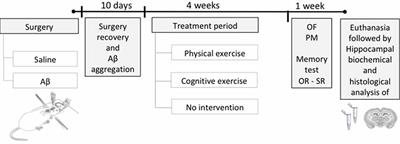EDITORIAL
Published on 12 Apr 2021
Editorial: From Oxidative Stress to Cognitive Decline - Towards Novel Therapeutic Approaches
doi 10.3389/fnmol.2021.650498
- 2,873 views
- 6 citations
29k
Total downloads
122k
Total views and downloads
Select the journal/section where you want your idea to be submitted:
EDITORIAL
Published on 12 Apr 2021
ORIGINAL RESEARCH
Published on 12 Nov 2020

ORIGINAL RESEARCH
Published on 21 Aug 2020

ORIGINAL RESEARCH
Published on 21 Aug 2020

ORIGINAL RESEARCH
Published on 06 Aug 2020

MINI REVIEW
Published on 27 Jul 2020

ORIGINAL RESEARCH
Published on 22 Jul 2020

REVIEW
Published on 02 Jul 2020

ORIGINAL RESEARCH
Published on 15 May 2020

ORIGINAL RESEARCH
Published on 14 May 2020

ORIGINAL RESEARCH
Published on 01 May 2020

ORIGINAL RESEARCH
Published on 24 Mar 2020

Frontiers in Aging Neuroscience
Frontiers in Behavioral Neuroscience
Frontiers in Neuroscience
Frontiers in Pharmacology